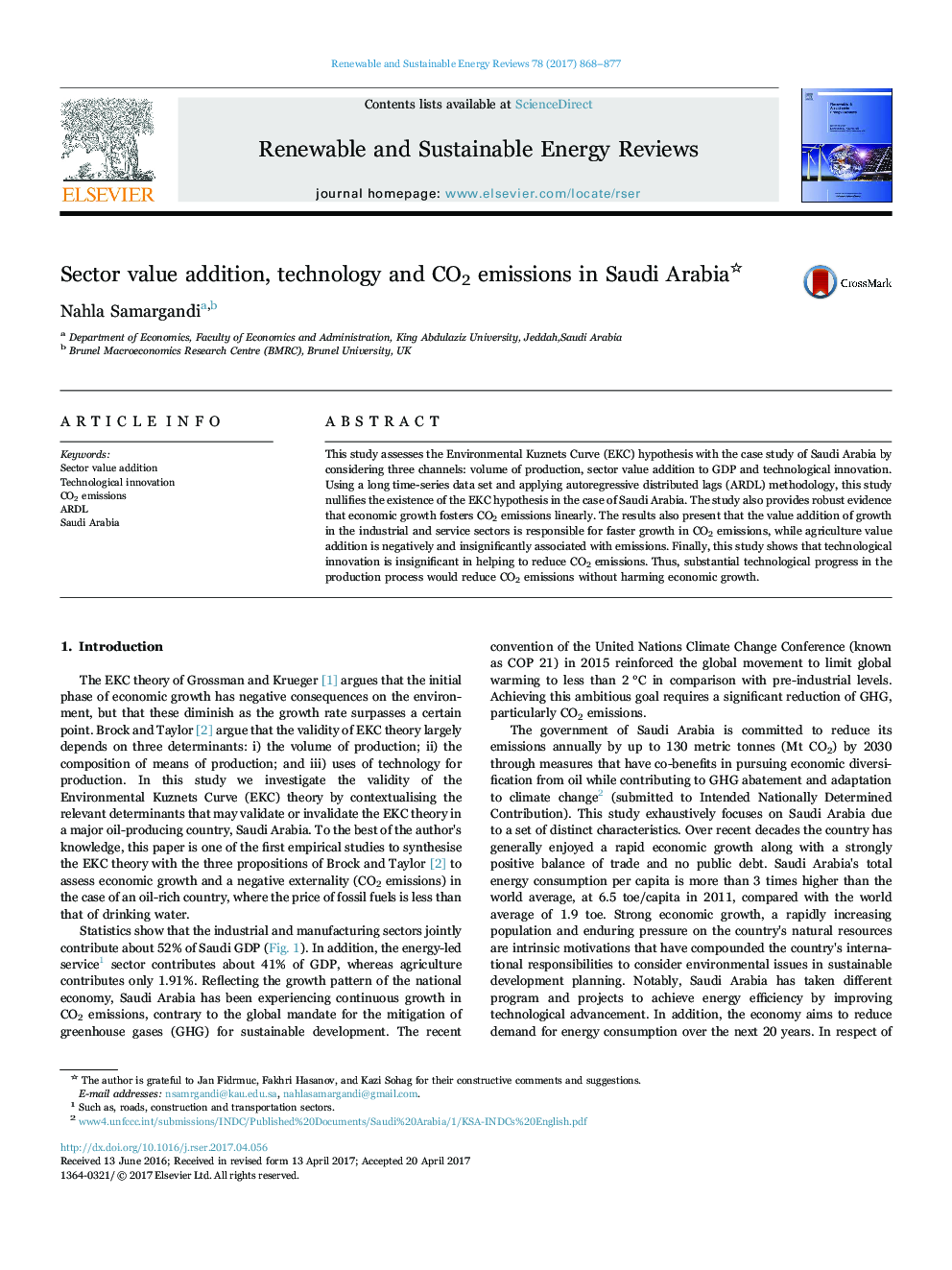| Article ID | Journal | Published Year | Pages | File Type |
|---|---|---|---|---|
| 5482509 | Renewable and Sustainable Energy Reviews | 2017 | 10 Pages |
Abstract
This study assesses the Environmental Kuznets Curve (EKC) hypothesis with the case study of Saudi Arabia by considering three channels: volume of production, sector value addition to GDP and technological innovation. Using a long time-series data set and applying autoregressive distributed lags (ARDL) methodology, this study nullifies the existence of the EKC hypothesis in the case of Saudi Arabia. The study also provides robust evidence that economic growth fosters CO2 emissions linearly. The results also present that the value addition of growth in the industrial and service sectors is responsible for faster growth in CO2 emissions, while agriculture value addition is negatively and insignificantly associated with emissions. Finally, this study shows that technological innovation is insignificant in helping to reduce CO2 emissions. Thus, substantial technological progress in the production process would reduce CO2 emissions without harming economic growth.
Related Topics
Physical Sciences and Engineering
Energy
Renewable Energy, Sustainability and the Environment
Authors
Nahla Samargandi,
